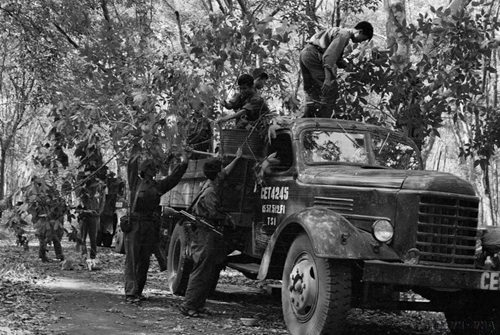Feldbauer, who served as the Hanoi-based correspondent for the German Democratic Republic’s ADN news agency from 1967 to 1970, highlighted that the ultimate success of the Ho Chi Minh campaign in April 1975 was rooted in the unyielding revolutionary will of the Vietnamese people. This resolve, he said, stemmed from a long tradition of anti-colonial resistance under the leadership of the Communist Party of Vietnam (CPV) and President Ho Chi Minh.
He also highlighted the crucial support from the socialist bloc, particularly the provision of modern weaponry by the former Soviet Union, and the international solidarity of peace movements and peoples across the world, including in the US.
According to Feldbauer, the Vietnamese revolution played a decisive role in inspiring national liberation struggles throughout Asia, Africa, and Latin America, with experiences drawn from it continuing to offer valuable lessons in the country’s application of Marxism-Leninism.
Touching on Vietnam’s policy of national unity and reconciliation, Feldbauer noted the spirit of national solidarity and people’s broad-based support during the liberation struggle and cited the humane conduct of the Vietnam People’s Army during the liberation of Sai Gon. He also recalled that General Duong Van Minh, the last President of the Republic of Vietnam, was allowed to return to his residence and live there until 1981.
    |
 |
|
Khe Sanh soldiers camouflage their vehicles. Photo: VNA |
Feldbauer praised the establishment of diplomatic relations between Vietnam and the U.S. in 1995 as well as the exchange of visits by US veterans and senior leaders from both countries. He also highlighted then US President Barack Obama’s decision to lift the arms embargo and his commitment to supporting Vietnam in addressing Agent Orange contamination.
Regarding the changes in Vietnam over the 50 years since reunification, Feldbauer observed that the country had undergone a profound transformation, particularly since the 6th National Party Congress in 1986. This marked the launch of the Doi moi (renewal) policy, which introduced multi-sector economic and market-oriented financial policies.
He stressed that Vietnam had risen from an economically underdeveloped nation to become one of the most dynamic economies in the world, achieving impressive growth rates and substantial improvements in per capita income and living standards.
Feldbauer paid particular tribute to late Party General Secretary Nguyen Phu Trong for his contributions to analyzing Vietnam’s development path. He also noted that Vietnam has consistently and firmly rejected any attempts to undermine its economic sovereignty, viewing this as a vital safeguard for its continued success on the path to socialism under the CPV’s leadership.
When asked how the legacy of the liberation struggle translates into today’s digital economy and industrial revolution, Feldbauer held that while many Southeast Asian countries following a capitalist model have faced growth challenges, Vietnam achieved impressive economic performance in 2024. He considered the country’s four-pillared strategy a vital driver of future progress.
He also pointed to Vietnam’s efforts to attract foreign investment into the semiconductor sector, including the creation of a national steering committee and partnerships with leading global technology firms.
Feldbauer assessed that the country’s open and outward-looking foreign policy, which prioritizes partnership and cooperation, is a key factor in today’s complex international situation. In particular, he took note of Vietnam’s comprehensive strategic cooperative partnership with China and traditional friendship with Russia.
The journalist holds a doctorate in Vietnamese history and has authored four books and numerous articles on the subject.
Source: VNA